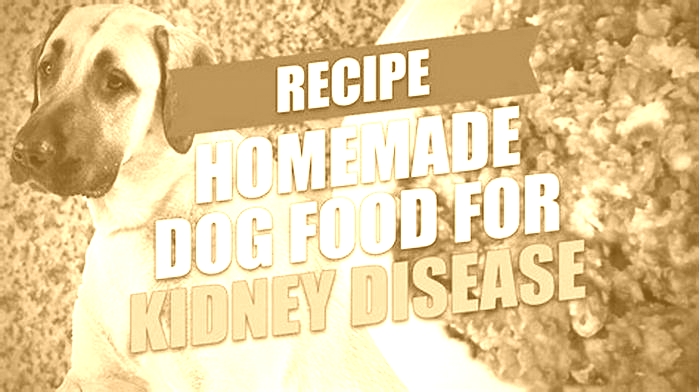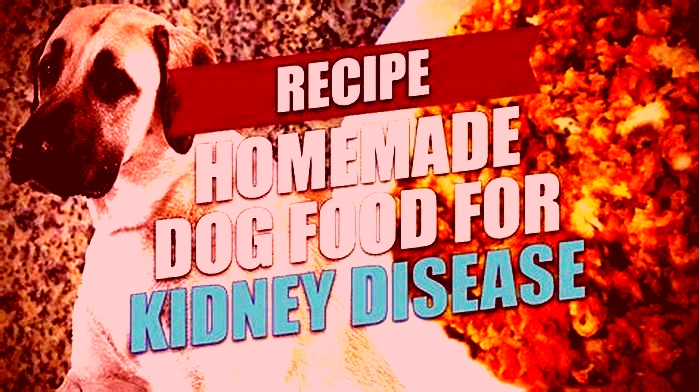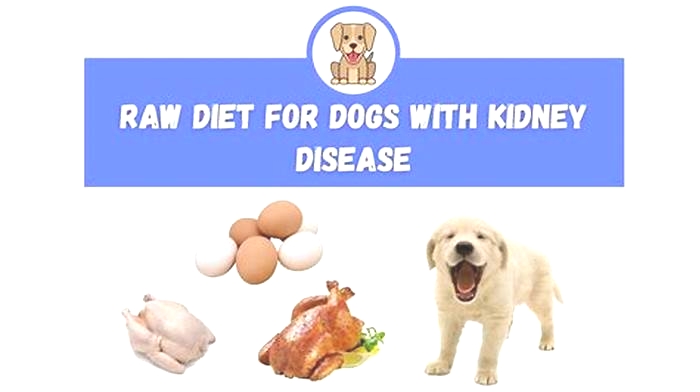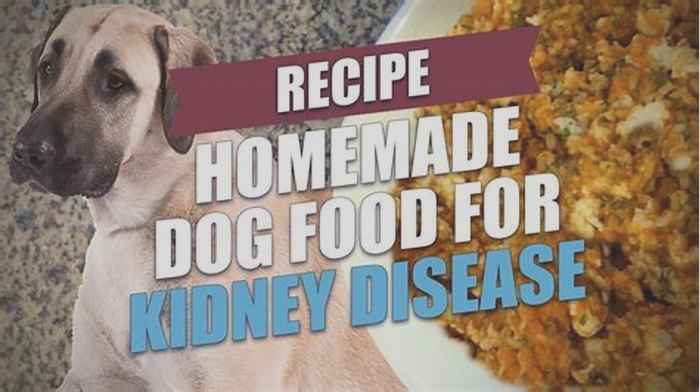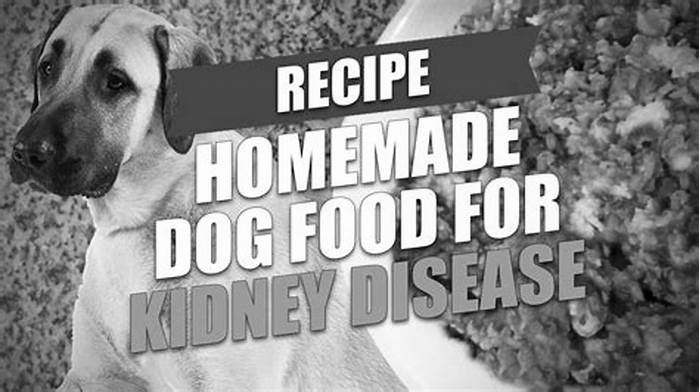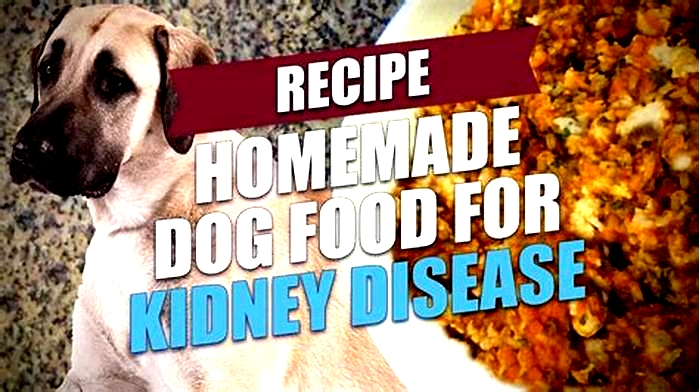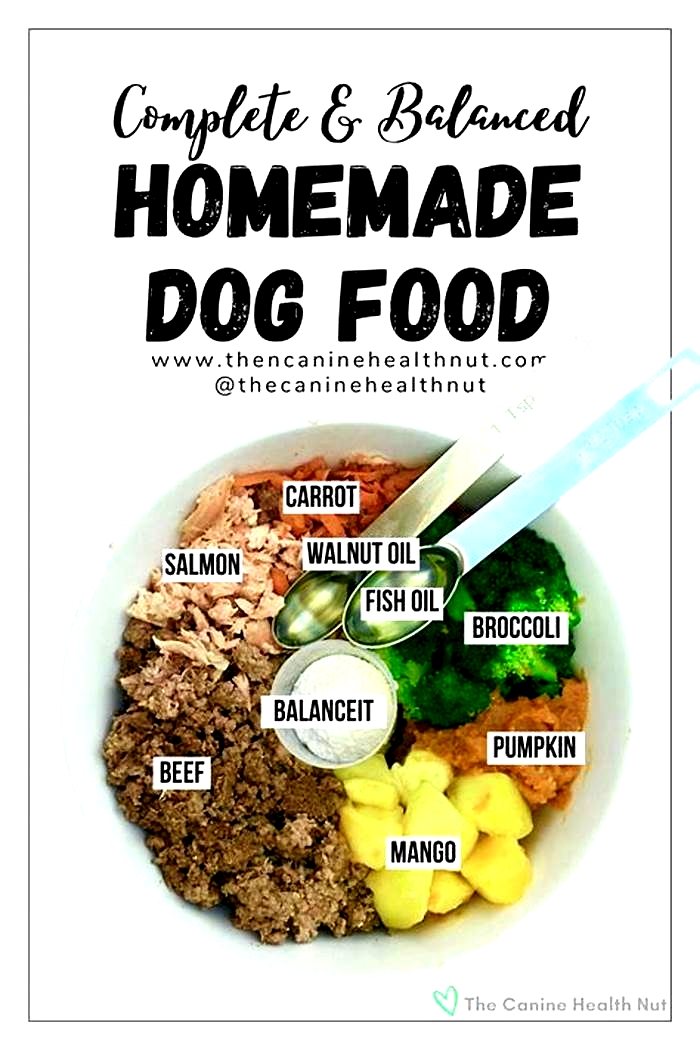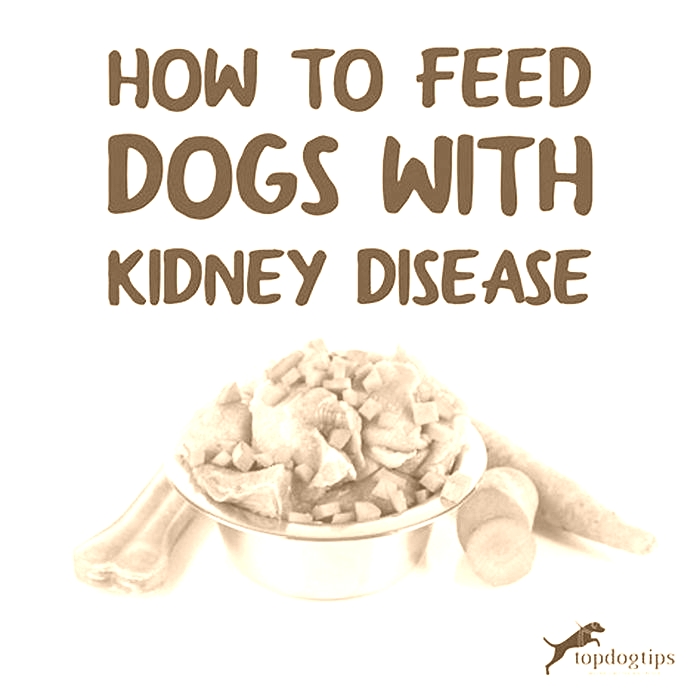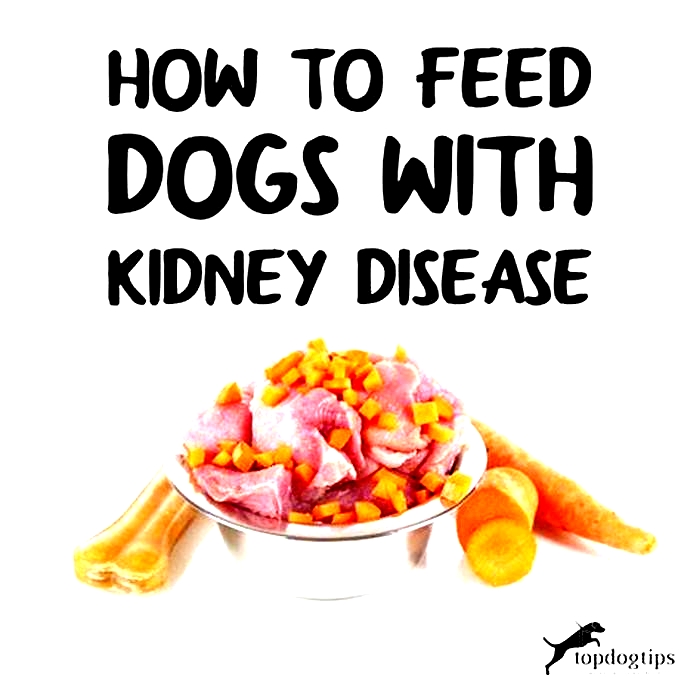kidney disease dog recipes
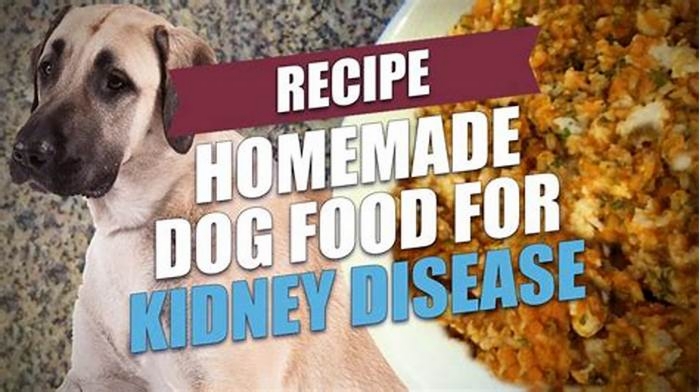
Homemade Dog Food for Your Canine with Kidney Disease
Kidney disease is a common health issue affecting our beloved canine companions, and proper nutrition plays a significant role in managing this condition. In this blog post, well explore vet-approved homemade dog food recipes designed to support dogs with chronic renal failure. These recipes are formulated to provide the essential nutrients your dog needs while considering the restrictions necessary to ease the burden on their kidneys. So, lets dive in and discover how you can provide wholesome, homemade dog food for renal disease for your furry friend straight from your kitchen!
What is Kidney Failure in Dogs?
Kidney disease is a severe condition affecting humans and animals, including dogs. It occurs when the kidneys can no longer effectively filter waste products and excess fluids from the bloodstream, which can lead to a buildup of toxins and a range of health issues. Kidney disease can be acute or chronic, with acute kidney disease often reversible if caught early and treated promptly.
Chronic kidney disease, however, is a progressive condition with no cure, and treatment focuses on managing symptoms and slowing disease progression. Common signs of kidney disease in dogs include increased thirst and urination, weight loss, lethargy, decreased appetite, and vomiting. Therefore, regular veterinary check-ups, early detection, and appropriate treatment are essential in managing kidney disease and ensuring your dogs best possible quality of life.
Vet-Approved Homemade Dog Food Recipes for Kidney Disease
Kidney disease is a prevalent condition in dogs, and diet plays a pivotal role in managing the progression of this ailment. One of the cornerstones of kidney disease management is to reduce the intake of certain minerals like phosphorus and to ensure adequate hydration. Vet-approved homemade dog food recipes for kidney disease are formulated to address these specific needs. These recipes often emphasize high-quality protein sources that are lower in phosphorus, such as egg whites and certain cuts of poultry. Additionally, they incorporate beneficial fats, controlled amounts of calcium, and a variety of non-toxic vegetables for added fiber and nutrients. Homemade recipes can be a fantastic way to give your dog a specialized diet tailored to their needs, but it is crucial to work closely with your veterinarian.
Every dog is unique, and what might be suitable for one may not be ideal for another. Before making any dietary changes, always consult with your vet to ensure the safety and appropriateness of the homemade diet for your canine companion.
Below are simple vet-approved homemade recipes for kidney disease in dogs:
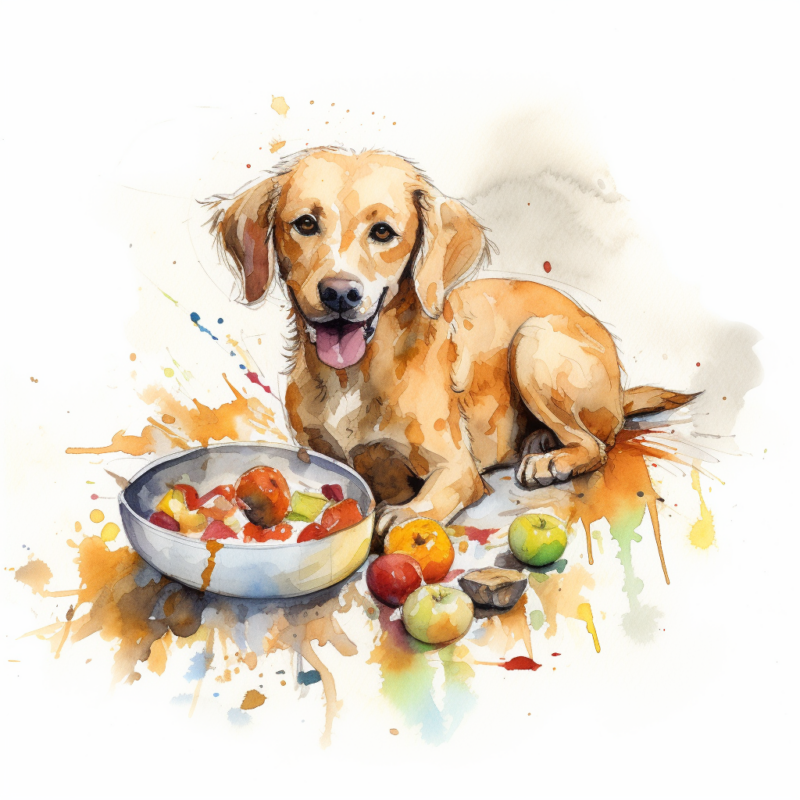
Recipe 1: Chicken and Rice Ingredients. Daily Portions Listed.
15 lb Spayed/Neutered Dog
480 kcal per day
- 53 g or 1 7/8 oz cups Chicken, broilers or fryers, breast, meat only, cooked, roasted
- 25 g or 5 5/8 tsp Oil, canola
- 4.8 g or 5 1/5 mL Nordic Naturals Omega-3 Pet Liquid
- 99 g or 5/8cup Rice, white, long-grain, regular, unenriched, cooked without salt
- 0.38 g or 1/16 tsp Morton Iodized Salt
- 3.5 g Wholistic Pet Organics
45 lb Spayed/Neutered Dog
1089 kcal per day
- 121 g or 4 1/4 oz Chicken, broilers or fryers, breast, meat only, cooked, roasted
- 59gor13 tsp Oil, canola
- 10.9 g or 11 9/10 mL Nordic Naturals Omega-3 Pet Liquid
- 217 g or 1 3/8 cup Rice, white, long-grain, regular, unenriched, cooked without salt
- 0.38 g or 1/16 tsp Morton Iodized Salt
- 7.8 g Wholistic Pet Organics
70 lb Spayed/Neutered Dog
1522 kcal per day
- 170 g or 6oz Chicken, broilers or fryers, breast, meat only, cooked, roasted
- 81 g or 18 tsp Oil, canola
- 15.3 g or 16 3/5 mL Nordic Naturals Omega-3 Pet Liquid
- 306 g or 1 15/16 cup Rice, white, long-grain, regular, unenriched, cooked without salt
- 0.38 g or 1/16 tsp Morton Iodized Salt
- 10.8 g Wholistic Pet Organics
Instructions:
- Mix all the ingredients in a large bowl until well combined.
- Divide the mixture into appropriate serving sizes for your dog.
- Serve at room temperature or slightly warmed.
Recipe 2: Kidney-Friendly Pork & High-Fat Diet. Daily Portions Listed.
15 lb Spayed/Neutered Dog
481 kcal per day
- 74 g or 2 5/8 oz cups Pork, fresh, loin, tenderloin, separable lean only, cooked, roasted
- 36 g or 8 tsp Oil, canola
- 6.7 g or 7 3/10 mL Nordic Naturals Omega-3 Pet Liquid
- 0.38 g or 1/16 tsp Morton Iodized Salt
- 3.3 g Wholistic Pet Organics
45 lb Spayed/Neutered Dog
1098 kcal per day
- 170 g or 6 1/8 oz Pork, fresh, loin, tenderloin, separable lean only, cooked, roasted
- 82 g or 18 1/4tsp Oil, canola
- 15.2 g or 16 1/2 mL Nordic Naturals Omega-3 Pet Liquid
- 0.38 g or 1/16 tsp Morton Iodized Salt
- 7.3 g Wholistic Pet Organics
70 lb Spayed/Neutered Dog
1539 kcal per day
- 244 g or 8 1/2oz Pork, fresh, loin, tenderloin, separable lean only, cooked, roasted
- 114 g or 25 3/8 tsp Oil, canola
- 21.2 g or 23 mL Nordic Naturals Omega-3 Pet Liquid
- 0.38 g or 1/16 tsp Morton Iodized Salt
- 10 g Wholistic Pet Organics
Instructions:
- Mix all the ingredients in a large bowl until well combined.
- Divide the mixture into appropriate serving sizes for your dog.
- Serve at room temperature or slightly warmed.
Recipe 3: Low-Protein Ground Beef & Oats. Daily Portions Listed.
15 lb Spayed/Neutered Dog
469 kcal per day
- 53 g or 1.875 oz cup -Beef, ground, 85% lean meat / 15% fat, patty, cooked, broiled
- 17 g or 3 7/8 tsp Oil, canola
- 4.2 g or 4 3/5 mL Nordic Naturals Omega-3 Pet Liquid
- 208 g or 1 3/16 Cup Cereals, oats, regular and quick, unenriched, cooked with water (includes boiling and microwaving), without salt
- 0.38 g or 1/16 tsp Morton Iodized Salt
- 2.4 g Wholistic Pet Organics
45 lb Spayed/Neutered Dog
1091 kcal per day
- 128 g or 4 1/2 oz Beef, ground, 85% lean meat / 15% fat, patty, cooked, broiled
- 39 g or 8 3/4 tsp Oil, canola
- 9.8 g or 10 3/5 mL Nordic Naturals Omega-3 Pet Liquid
- 481 g or 2 3/4 Cup Cereals, oats, regular and quick, unenriched, cooked with water (includes boiling and microwaving), without salt
- 0.38 g or 1/16 tsp Morton Iodized Salt
- 6.0 g Wholistic Pet Organics
70 lb Spayed/Neutered Dog
1539 kcal per day
- 181 g or 6.38 oz Beef, ground, 85% lean meat / 15% fat, patty, cooked, broiled
- 55 g or 12 1/8 tsp Oil, canola
- 13.5 g or 14 7/10 mL Nordic Naturals Omega-3 Pet Liquid
- 667 g or 3 13/16 Cup Cereals, oats, regular and quick, unenriched, cooked with water (includes boiling and microwaving), without salt
- 0.38 g or 1/16 tsp Morton Iodized Salt
- 8.1 g Wholistic Pet Organics
Instructions:
- Mix all the ingredients in a large bowl until well combined.
- Divide the mixture into appropriate serving sizes for your dog.
- Serve at room temperature or slightly warmed.
What are Appropriate Food Options for Kidney Disease in Dogs?
When feeding a dog with renal (kidney) disease, its crucial to provide a diet that supports kidney function and overall health. A diet for dogs with kidney disease should typically have low protein, phosphorus, and sodium levels and increased omega-3 fatty acids, B vitamins, and antioxidants.
Always consult your veterinarian before making any significant changes to your dogs diet, as they can provide guidance based on your dogs specific needs.
Here are some examples of food options for a dog with renal disease:
- Prescription renal diets: Your veterinarian may recommend a specific prescription renal diet tailored to your dogs needs. These diets are specially formulated to meet the nutritional requirements of dogs with kidney disease. However, these diets are often unpalatable. Thus, formulating homemade renal diets provides your pet a palatable diet that reduces strain on the kidneys.
- Low-phosphorus protein sources: Choose low-phosphorus protein options such as egg whites, chicken breast, or fish. Higher-phosphorus proteins such as beef, pork, and whole eggs should be consumed in moderation, and, if used in a kidney diet, should be carefully balanced with the other ingredients.
- Vegetables: Offer low-phosphorus vegetables such as green beans, cauliflower, or zucchini. Avoid high-phosphorus vegetables like succotash, lima beans, soybean sprouts, pea sprouts, and green peas.
- Carbohydrates: Provide easily digestible carbohydrate sources such as white rice, potatoes, or pasta.
- Omega-3 fatty acids: Supplement your dogs diet with omega-3 fatty acids from fish or flaxseed oils to help reduce inflammation and support kidney function.
- Fresh water: Make sure your dog can access clean water to maintain hydration.
Remember to ask your vet before changing your dogs diet. Your veterinarian can guide you on the right food and portion sizes based on your dogs nutritional needs and health conditions. In addition, regular check-ups and monitoring are essential to ensure that the diet works effectively and make any necessary adjustments.
Ingredients to be Avoided by Dogs With Kidney Disease
When managing kidney disease in dogs, avoiding certain ingredients in their diet is essential to prevent further kidney damage and alleviate symptoms. Some ingredients to avoid include:
High-phosphorus foods
In dogs with chronic kidney disease (CKD), its essential to control and limit the intake of phosphorus, as excessive phosphorus can exacerbate kidney damage. Here are some high-phosphorus foods that should typically be limited or avoided for dogs with CKD:
- Meat and Poultry: Especially organ meats like liver, kidney, and heart. These are particularly high in phosphorus.
- Fish: Certain types of fish, especially sardines, mackerel, and salmon, can be high in phosphorus.
- Dairy Products: Cheese, milk, and yogurt.
- Bones and Bone Meals: These are very high in phosphorus. Avoid giving bone treats or foods that have bone meal as an ingredient.
- Whole Grains: Like wheat, oats, and quinoa. Although they might be healthy in regular circumstances, they can be higher in phosphorus content.
- Beans and Legumes: Such as lentils, chickpeas, and other beans.
- Nuts and Seeds: Especially pumpkin seeds, flaxseeds, and chia seeds.
- Egg Yolk: While egg white is a low-phosphorus, high-quality protein, the yolk is richer in phosphorus.
Its essential to remember that while you may want to limit these foods, it doesnt mean they should be completely eliminated without consulting a veterinarian. Some might still be incorporated in minimal amounts depending on the dogs specific needs, the stage of kidney disease, and other dietary considerations. Always collaborate with your veterinarian or a veterinary nutritionist when planning or altering your dogs diet, especially for chronic conditions like CKD.
High-protein foods
While protein is necessary for dogs, those with kidney disease require a diet with moderate or lower protein levels to reduce the kidney workload. Avoid feeding your dog high-protein sources like red meat and poultry.
High-sodium foods
Excessive sodium can cause high blood pressure and further strain the kidneys. Avoid processed foods, table scraps, and salty snacks.
High-potassium foods
Kidney disease can cause elevated potassium levels in the blood, leading to complications. Avoid foods like bananas, oranges, and potatoes.
High-fat foods
A high-fat diet can exacerbate kidney problems and contribute to obesity, which can further stress the kidneys. Therefore, limit fatty meats and dairy products.
Grains
Some grains, mainly those high in phosphorus, should be limited or avoided. These include wheat bran and whole grains.
Is It Safe for a Dog With Renal Disease to Maintain Its Regular Meal Schedule?
Yes, your dog with renal disease can still eat at regular times. Maintaining a consistent feeding schedule is essential for managing the condition. However, some changes might be needed to the diet, such as adjusting the portions or the type of food youre feeding your dog. It is essential to provide a diet that meets your dogs specific nutritional requirements while addressing their kidney disease.
A dog with renal disease may have a reduced appetite or struggle with nausea, making it harder to eat their regular portions. In such cases, you can offer smaller, more frequent meals throughout the day. This can help keep your dogs energy levels stable and make consuming the necessary nutrients easier.
Tips for Managing Kidney Disease and Improving Quality of Life
- Regular veterinary check-ups: Regular check-ups with your veterinarian will help monitor your dogs kidney function and overall health. Early detection of changes in their condition can lead to prompt treatment adjustments, slowing the diseases progression.
- Maintain a consistent diet: Stick to the prescribed diet and avoid giving your dog any treats or table scraps that arent kidney-friendly. Consistency is critical to managing your dogs kidney disease effectively.
- Hydration is crucial: Ensure your dog can always access fresh water. Consider using a pet fountain or adding low-sodium broth to their food to encourage water intake.
- Monitor weight: Regularly weigh your dog and report any sudden weight loss or gain to your veterinarian. Weight fluctuations can signify worsening kidney disease or other health issues.
- Manage medications: Follow your veterinarians recommendations for drugs and supplements to manage your dogs kidney disease. Be consistent with dosing and timing to ensure optimal effectiveness.
- Regular exercise: Maintain a consistent exercise routine to help your dog stay active and maintain a healthy weight. Consult with your veterinarian about appropriate activity levels for your dogs condition.
- Keep a clean environment: A clean environment can help prevent infections, which can be particularly harmful to dogs with kidney disease. Regularly clean your dogs bedding, food and water dishes, and living spaces.
- Manage stress: Minimize stress in your dogs life by maintaining a consistent routine and providing a calm, comfortable environment. Stress can exacerbate kidney disease and other health issues.
- Watch for signs of change: Be observant and monitor your dog for any changes in behavior, appetite, energy levels, or other symptoms that may indicate a change in their condition. Report any concerns to your veterinarian promptly.
- Provide emotional support: Offer love, comfort, and attention to your dog during this challenging time. Emotional support can help improve their quality of life and strengthen the bond between you and your furry friend.
Managing kidney disease in your dog may seem overwhelming, but with proper care, regular check-ups, and a supportive approach, your dog can still enjoy a good quality of life. Always consult your vet or canine nutritionist to ensure you take the best care of your dogs needs.

